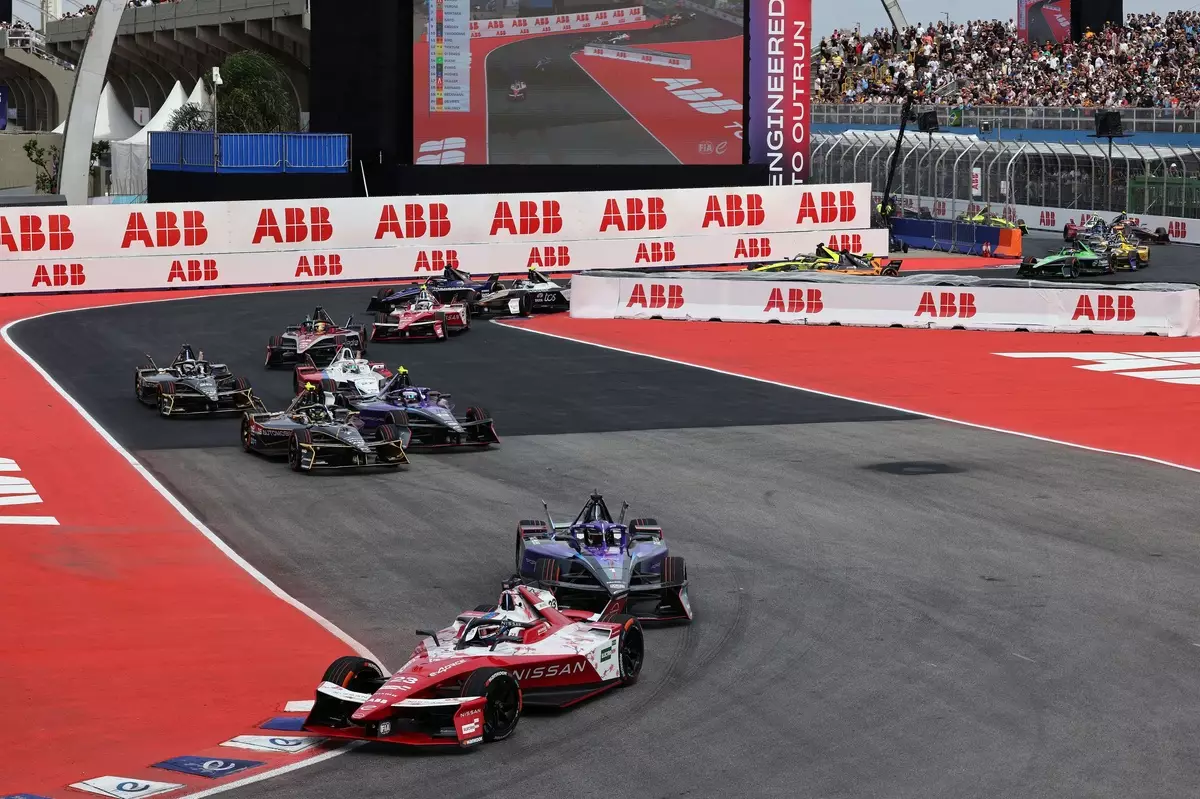The beautiful streets of Sao Paulo turned into a battleground for electrifying motorsport as the 2024-25 Formula E season kicked off this past weekend. Among the drivers competing fiercely for glory, Oliver Rowland found himself upfront but ultimately faced a crushing reality, finishing in 14th place despite leading the most laps in the race. The irony of an impressive initial performance overshadowed by mismanagement and regrettable decisions strikes a harsh chord in the heart of what should have been a triumphant entry to the season.
Starting the race from pole position would have filled anyone with confidence, yet for Rowland, qualifying just 0.099 seconds behind reigning champion Pascal Wehrlein placed him in a challenging yet promising position. The driver experienced a solid start, temporarily ceding the lead to Nick Cassidy, who capitalized on the new all-wheel-drive Attack Mode. The strategy was working smoothly until a series of events began to spiral out of control.
Rowland’s early lead was an exhilarating sight, allowing him to carve out a three-second gap before disaster struck in the form of a drive-through penalty. What began as a promising race quickly deteriorated into a series of unfortunate mechanics, leading to disappointment both on and off the track. “It’s hard to accept sometimes,” Rowland expressed in despair, lamenting that he successfully led 17 out of 35 laps yet still walked away without any championship points.
In the world of motorsport, penalties can be the death knell for a driver’s chances. Rowland’s drive-through penalty stemmed from an ‘overpower’ issue, where drivers exceed track limitations or misjudge their energy management, leading to devastating laps lost. Comparable scenarios from past races flashed through Rowland’s mind, particularly an incident at Misano where he ran out of energy after being misinformed about the number of laps remaining.
Reflecting on the missteps that haunted him throughout the race weekend, Rowland noted the significant impact of inadequate information regarding laps, suggesting that had he been accurately briefed, he could have deployed his energy more effectively, potentially securing a victory. The pressure of managing speed and energy output while navigating competitive racing was a delicate balance, and Rowland’s inability to maintain that balance amidst the chaos cost him dearly.
Rowland’s disappointment stemmed not just from the outcome of the race but from the realization that miscalculations had overshadowed his natural speed and racecraft. He expressed frustration over how swiftly things transitioned from leading the pack to being relegated to the back of the grid. Conditions on the track played a key role, with the double red flag situation neutralizing any momentum built earlier.
“To be completely honest, there was more than one f**k up, let’s say,” Rowland voiced candidly, encapsulating the essence of competitive motorsport’s unpredictable nature. This episode raises critical questions about team communications, energy management, and a driver’s ability to adapt to rapidly changing race conditions.
While Rowland’s Sao Paulo E-Prix ended in disappointment, the experience serves as a profound lesson in resilience within the high-stakes world of Formula E. Misjudged circumstances, combined with unforeseen technical difficulties, can conspire against even the most promising contenders. As Rowland and his team regroup and assess their strategies and performance, fans and analysts alike are left pondering the intricate dynamics of racing and the hard lessons forged in the heat of competition.
The road ahead in this season remains long, filled with potential for redemption and recovery. For Rowland, it will be crucial to build on lessons learned while navigating the complexities of motorsport, ultimately driving toward a more consistent and fruitful year on the racetrack.

